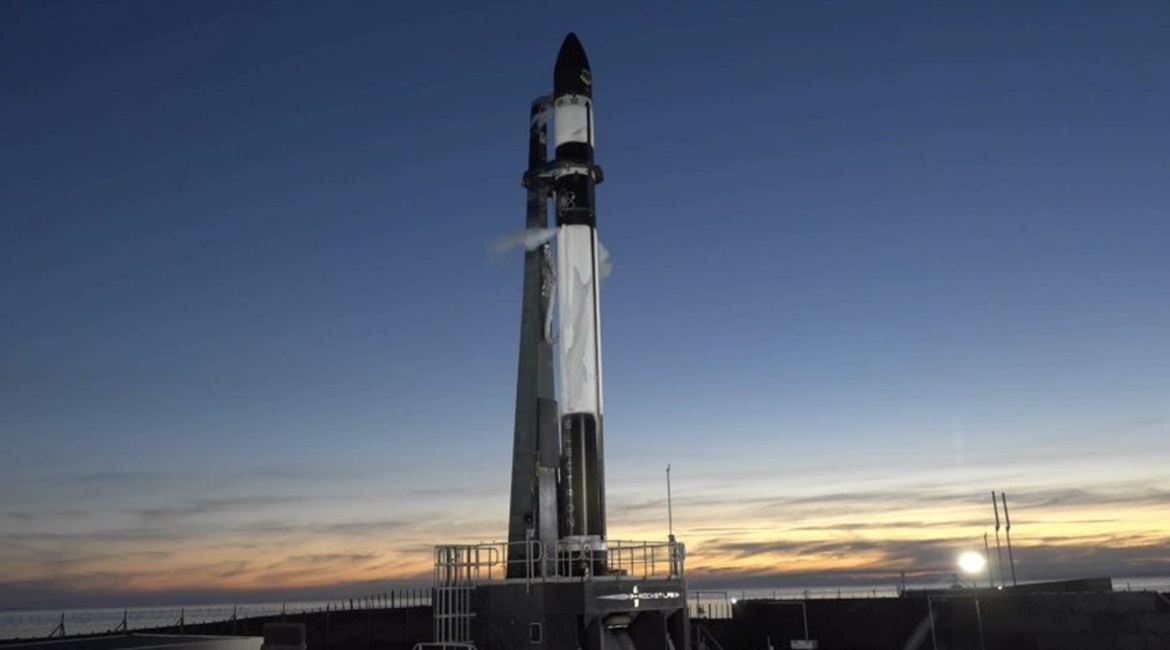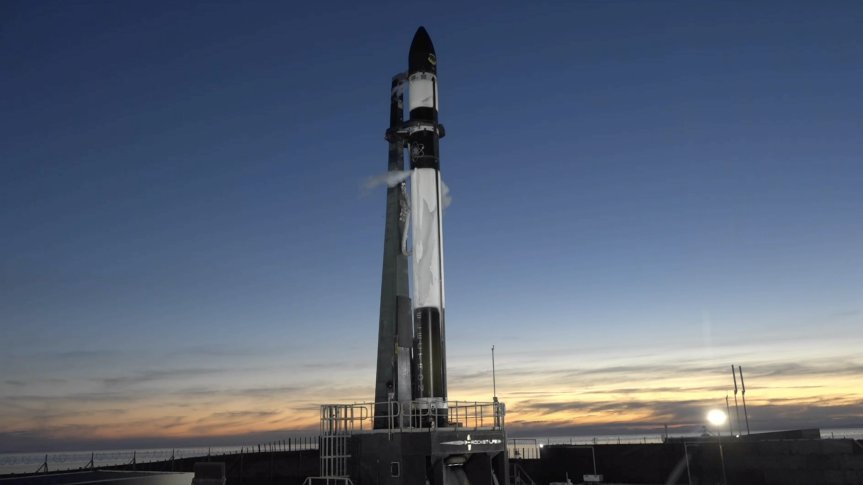
The prize money allotted for the US Defense Advanced Research Projects Agency’s (DARPA’s) upcoming Launch Competition (DLC) may not have been enough to attract competitors willing to pursue the competition to its end as the competitor pool has dwindled from three companies to just one.
The goal of the DLC is to accelerate unconstrained launch capabilities to allow for flexibility and resilience, rather than one-of-a-kind, fixed infrastructure as launch is today. Competitors in early 2020 were to receive notice of the first launch site just weeks prior to launch and exact details on the payload just days before.

Rocket Lab chose not to participate in the DARPA Launch Challenge because it chose to focus its limited time to fly a pair of Pentagon missions rather than use those valuable launch slots in the launch challenge. Pictured is the company's Electron rocket prior to a recent US Air Force mission. (Rocket Lab)
Competitors were to earn USD2 million for successfully delivering the first payload to a specified low earth orbit (LEO) destination. Within weeks of completing the first launch, competitors were to attempt to deliver a second payload to another LEO from a different launch site specified by DARPA. The first place prize, if successful, is USD10 million, with a second place prize of USD9 million and a third place award of USD8 million.
There is only one company, remaining unnamed by DARPA, currently pursuing the DLC after VOX Space, a subsidiary of Virgin Orbit, and Vector Launch dropped out. The companies told Jane’s that while they supported the DLC’s goal, they did not want to deprioritise existing customers to focus on the DLC.
Peter Beck, Rocket Lab founder and CEO, told Jane’s
Looking to read the full article?
Gain unlimited access to Janes news and more...






